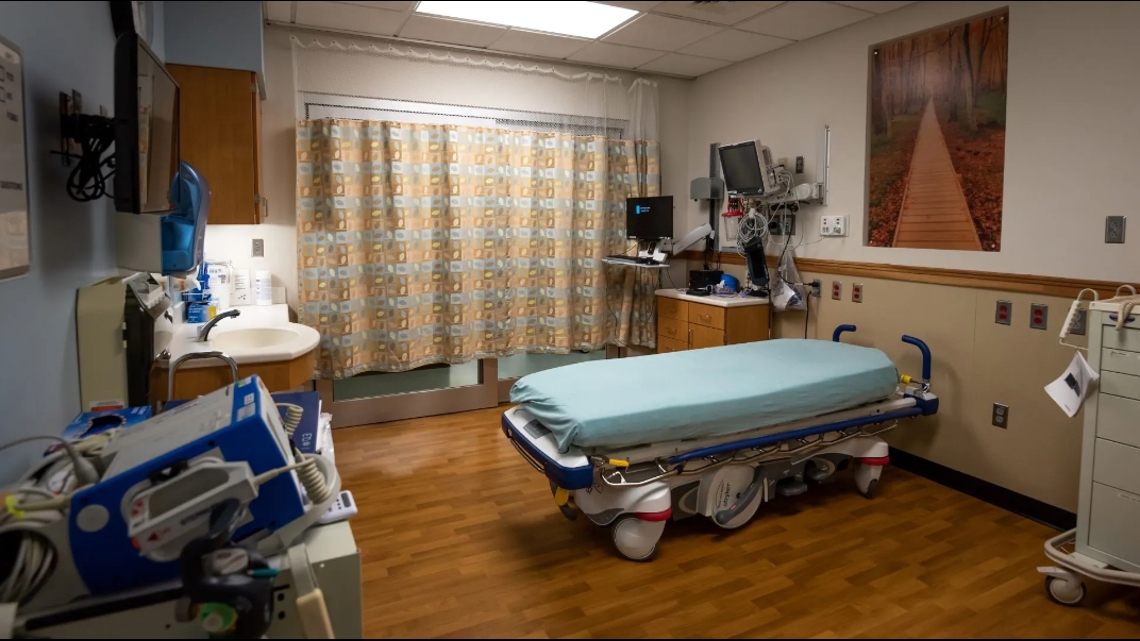MAINE, USA — The Biden administration finalized new rules for nursing homes this week that establish minimum care hours from registered nurses and nurse aides, and require a registered nurse on duty at all times.
The requirements were met with both support and opposition. Advocates praised the rules as a good first step toward addressing what one study found was “dangerously low” staffing in many nursing homes, but some say the minimums still fall short of what studies have found is necessary to provide quality care. Providers say the mandate will be difficult to meet when nursing homes are already grappling with workforce shortages.
Richard Mollot, executive director of the advocacy group Long Term Care Community Coalition, said he applauded the effort to improve resident safety and dignity, but the final ruling does not go far enough.
“While it may offer relief to residents in facilities with very low staffing, it jeopardizes residents in those with higher staffing levels, since those operators are now incentivized to decrease their staffing to the new federal standard,” Mollot said.
The Maine Health Care Association, which represents the state’s nursing homes, said the new standard will be a financial burden on facilities that are already struggling and can’t find workers, which could force them to downsize or even close.
“This unfunded mandate won’t magically solve the healthcare workforce shortage,” MHCA president and CEO Angela Cole Westhoff said in a statement. “Almost every nursing home in Maine is already trying to hire more employees. The fundamental problem is there simply are not enough nurses to fulfill this mandate’s impractical requirements. We need targeted investments, not blanket rules, to grow the long term care workforce.”
Under the new rules, nursing homes that accept Medicare and Medicaid will be required to provide 0.55 hours of care from a registered nurse and 2.45 hours of care from a nurse aide per resident every day. They must also have a registered nurse on duty at all times.
When the standards were proposed last year, an analysis by The Maine Monitor of the latest federal staffing data found that Maine nursing homes were closer to meeting the minimum requirements than counterparts in almost all other states — only Alaska and Hawaii performed better.
But Maine nursing homes were still far from meeting the standard every day.
From April to June last year, just 8 percent of Maine nursing homes met both standards every day. The national average was 1 percent.
Maine nursing homes may be better suited to meet the new standards because the state already has its own staffing requirements, including minimum staff ratios of at least one direct-care staff member for every five residents during the day; one for every 10 residents in the evening; and one for every 15 residents overnight.
But Maine nursing homes have been struggling, with 11 closures in the last three years, according to the Maine Health Care Association.
Gov. Janet Mills this week signed a supplemental budget that included $26 million for state nursing homes after long-term care leaders urged lawmakers to provide more support.
And The Maine Monitor recently reported that rates of antipsychotic medications given to nursing home residents have started to climb again in recent years, which advocates and experts said could be related to workforce shortages, understaffing and reliance on temporary agency staffing.
Long-term care resident advocates and industry leaders said in December that the requirement to always have a registered nurse on duty will be difficult to meet due to workforce shortages.
Even so, our analysis of the payroll data — conducted with help from USA Today and Stanford University’s Big Local News initiative — found that Maine is better positioned than other states to meet this requirement.
The Monitor found that 20 of Maine’s 85 nursing homes at the time — about 24 percent — met the required registered nurse hours every day from April to June last year, which was better than all other New England states. Nationally, only 6 percent of nursing homes met this standard.


The new federal rules will be rolled out in phases to give nursing homes time to hire the staff necessary to meet the requirements.
Within two years, they must meet the 24/7 registered nurse requirement, and within three years homes must meet the minimum care hours from registered nurses and nurse aides. Nursing homes in rural areas will have more time: three years to meet the 24/7 registered nurse requirement and five years to meet the total hours per resident per day standard.
The U.S. Centers for Medicare and Medicaid Services, which regulates nursing homes, is developing a $75 million campaign to provide financial incentives for registered nurses to work in nursing homes, such as tuition reimbursement and making it easier to enroll in training programs.
CMS received more than 46,000 public comments on the rule proposal, according to a press release, many highlighting the ways nursing home residents suffer when there aren’t enough nurses on duty.
“Everyone should have equal access to the critical care they need,” Health and Human Services Secretary Xavier Becerra said in a press release. “Our caregivers — those who are taking care of the ones we love — deserve our respect and full support.”
This story was originally published by The Maine Monitor, a nonprofit and nonpartisan news organization. To get regular coverage from the Monitor, sign up for a free Monitor newsletter here.



